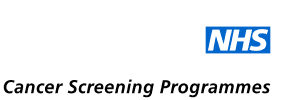Women should choose to accept their invitations for cervical screening

Women should choose to accept their invitations for cervical screening |
 |
|
|
Published 26th March, 2002 The results of a systematic review of published data show that the relative risk of cervical cancer increases with increasing duration of oral contraceptive use, (Cervical cancer and use of hormonal contraceptives: a systematic review by Smith JS, Green J et al The Lancet April 5, 2003). In response, Julietta Patnick, National Coordinator, NHS Cervical Screening Programme comments: "This study illustrates why women should choose to accept their invitations for cervical screening. Cervical screening is one of the most effective ways of protecting women against cervical cancer as it detects abnormal cells that may, if left untreated, develop into cancer." "Cervical screening now saves approximately 1,300 lives a year. The incidence of cervical cancer in England and Wales has fallen by 42 per cent between 1988 and 1997, and this fall is directly related to the NHS Cervical Screening Programme. While cervical screening is not perfect, it can prevent 80 to 90 per cent of cancer cases in women who attend for regular smears. Screening is one of the best defences against cervical cancer." "It is no exaggeration to say that one of the biggest risk factors is not attending for a smear." "Women aged from 25 to 64 are invited for a smear every three to five years. If a woman has not had a smear in the past five years, she can request one from her GP, or attend a Well Woman or Family Planning clinic, or a G.U.M. clinic (genito-urinary medicine)." Professor Martin Vessey, Chair, the Advisory Committee on Cervical Screening adds: "While this review supports the view that long term use of oral contraceptives is associated with an increased risk of cervical cancer, it is important to remember that the benefits of taking oral contraceptives far outweigh the risks for the majority of women. In particular, oral contraceptive use markedly reduces the risk of ovarian cancer and cancer of the lining of the womb (endometrium)." For more information contact NHS Direct on 0845 4647. |
Cervical screening programme index What happens at a Diethylstilbestrol (DES) exposed women Who does what in the NHS Cervical Screening Programme |
||||||||
|
||||||||||